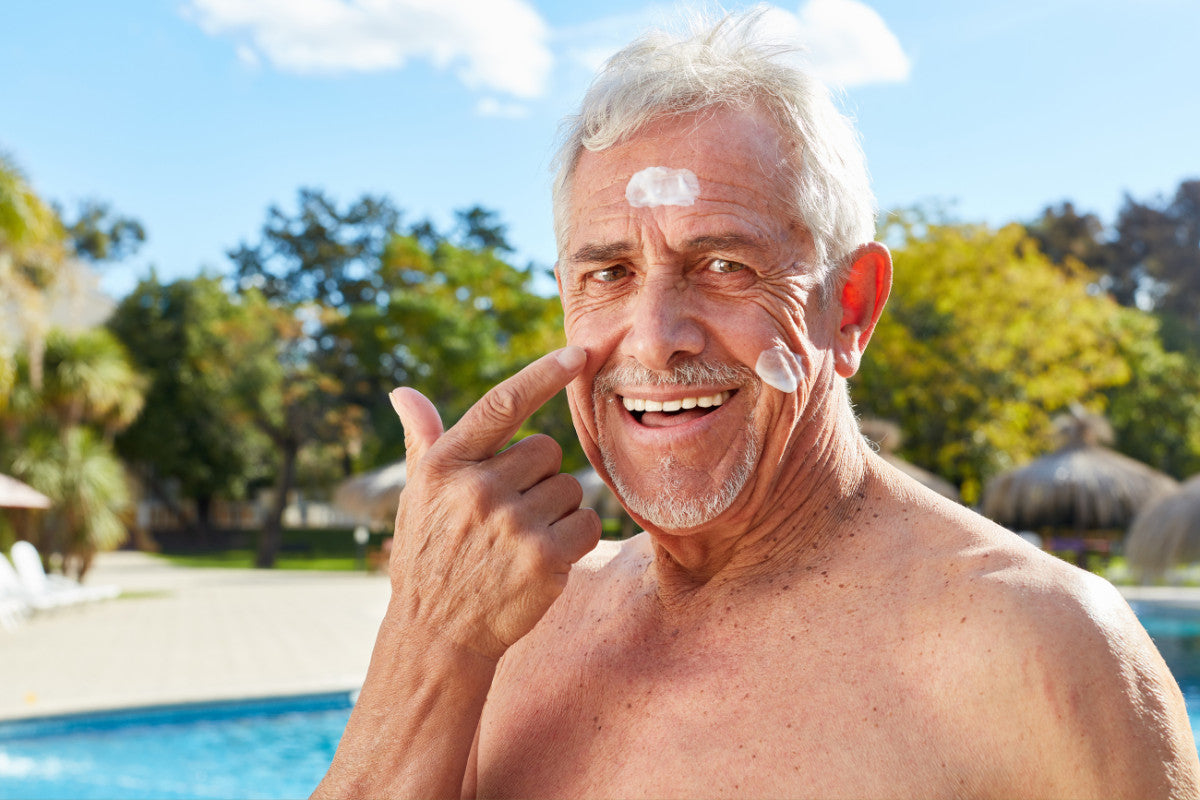Your Cart is Empty
FREE SHIPPING OVER $45 & RETURNLESS REFUNDS

As we age, our bodies go through various changes, and one area that often gets overlooked is our skin. Our skin is the largest organ of our body, and it's a good indicator of our general health. As we get older, our skin requires extra care and attention, and sun protection becomes especially important.
While many of us may have enjoyed soaking up the sun in our younger years, it's crucial to understand that the effects of sun exposure can accumulate over time, leading to serious consequences for our skin's health.
The cumulative effect of sun exposure over a lifetime can catch up with us as we age. Many people may have spent years basking in the sun without adequate protection, leading to accumulated sun damage that may only become apparent in later years. This can manifest as dark spots, uneven skin tone, and an increased risk of skin cancer.
It can also affect your skin in many other ways too.
A change that occurs naturally with aging is the thinning of the skin. As it thins and starts to lose its elasticity, our skin can become more susceptible to bruising, tearing, and sun damage.
Sun exposure can exacerbate this thinning process and accelerate skin aging, leading to fine lines, wrinkles, and sagging skin.
Our immune system becomes less efficient in repairing and protecting our skin when exposed to environmental damage like UV rays. UV rays can suppress the immune system's ability to fight off harmful substances in the skin, which can increase the risk of skin cancer and other skin-related issues.
Older individuals may already have pre-existing skin conditions, such as rosacea, eczema, or psoriasis, which can be exacerbated by sun exposure. Sunburns can trigger flare-ups and worsen the symptoms of these skin conditions, causing discomfort and pain.
Older adults may be taking medications or undergoing medical treatments that can make their skin more sensitive to the sun. Some medications, such as antibiotics, diuretics, and certain topical creams, can increase photosensitivity and make the skin more prone to sunburn.
Additionally, medical treatments like chemotherapy or radiation therapy can make the skin more susceptible to sun damage and require extra precautions.
Less than half of older adults properly care for and protect their skin from the sun when they're outside. Without proper care, sun exposure can cause sunburn, premature skin aging, eye damage, and can even raise your risk of getting skin cancer.
Given these factors, it is essential for older individuals to prioritize sun protection to safeguard their skin health. Here are some tips to help protect your skin from the sun:
Avoid direct sun exposure during peak hours when the sun's rays are at its strongest, usually between 10 a.m. and 4 p.m. Use an umbrella or find shade to stay under.
Let me know what topics you're interested in, and I'll do my best to include them in future blogs! Email me at mark@outbackoil.com